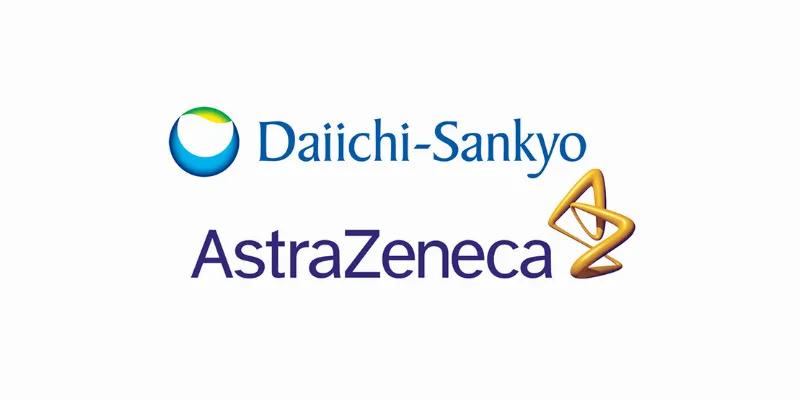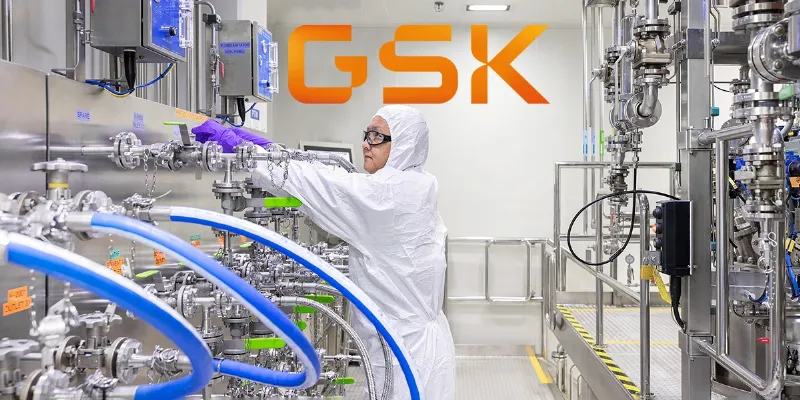Positive Results for AstraZeneca and Daiichi Sankyo's Breast Cancer Drug

23 September 2023
AstraZeneca and Daiichi Sankyo have announced promising results from a Phase 3 trial of their investigational drug, datopotamab deruxtecan, for treating HR-positive, HER2-low or negative breast cancer. The study showed significant improvement in progression-free survival, with plans for global regulatory submissions underway. The companies are also exploring the drug's potential for lung cancer treatment. This breakthrough in treatment offers renewed hope for millions diagnosed with this common breast cancer subtype.
Datopotamab deruxtecan demonstrated statistically significant and clinically meaningful progression-free survival benefit in patients with HR-positive, HER2-low or negative breast cancer in TROPION-Breast01 Phase III trial
In a significant stride towards battling breast cancer, pharmaceutical giants AstraZeneca and Daiichi Sankyo have unveiled encouraging results from a Phase 3 study of their investigational drug, datopotamab deruxtecan. This novel TROP2-targeting antibody drug conjugate is being evaluated for patients with inoperable or metastatic hormone receptor (HR)-positive, HER2-low or negative breast cancer, a subtype accounting for over 65% of diagnosed cases globally.
The TROPION-Breast01 trial demonstrated that datopotamab deruxtecan significantly improved progression-free survival compared to the investigator’s choice of single-agent chemotherapy. A trend towards improvement in overall survival was also observed, although the data were not mature at the time of interim analysis. The safety profile of the drug remained consistent with previous clinical trials, with no new safety signals identified.
Susan Galbraith, Executive Vice President of Oncology R&D at AstraZeneca, expressed her optimism, stating, “Today’s TROPION-Breast01 news is a significant development for patients with HR-positive, HER2-low or negative metastatic breast cancer whose tumours have become insensitive to endocrine therapy and who currently face poor outcomes. We are encouraged by these positive results.”
The companies have initiated plans for global regulatory submissions and are also exploring the potential of datopotamab deruxtecan as a treatment for lung cancer. The positive results have had a noticeable impact on the market, with American depositary shares (ADSs) of AstraZeneca experiencing a 2% rise in early trading following the announcement.
Ken Takeshita, MD, Global Head, Oncology R&D, Daiichi Sankyo, said: “The positive topline results from TROPION-Breast01 demonstrate the potential for datopotamab deruxtecan to become an important treatment option for patients with HR-positive, HER2-low or HER2-negative breast cancer in the second-line metastatic setting. We look forward to realising the full potential of this TROP2-directed antibody drug conjugate across breast cancer subtypes through our ongoing Phase III programme, including two trials in patients with triple-negative breast cancer.”
In addition to the TROPION-Breast01 trial, AstraZeneca and Daiichi Sankyo are conducting two more Phase III trials to assess datopotamab deruxtecan in different settings of breast cancer. The findings from these studies are eagerly awaited and will be presented at an upcoming medical meeting and shared with health authorities. This development marks a pivotal moment in the ongoing battle against breast cancer, offering hope to millions of patients worldwide. The collaborative efforts of AstraZeneca and Daiichi Sankyo underscore the importance of innovation and partnership in the relentless pursuit of life-saving treatments.
Datopotamab deruxtecan (Dato-DXd)
Datopotamab deruxtecan (Dato-DXd) is an investigational TROP2-directed ADC. Designed using Daiichi Sankyo’s proprietary DXd ADC technology, datopotamab deruxtecan is one of five lead ADCs in the oncology pipeline of Daiichi Sankyo, and one of the most advanced programmes in AstraZeneca’s ADC scientific platform. Datopotamab deruxtecan is comprised of a humanized anti-TROP2 IgG1 monoclonal antibody, developed in collaboration with Sapporo Medical University, attached to a number of topoisomerase I inhibitor payloads (an exatecan derivative, DXd) via tetrapeptide-based cleavable linkers.
A comprehensive development programme is underway globally with more than 12 trials evaluating the efficacy and safety of datopotamab deruxtecan across multiple tumours, including non-small cell lung cancer, triple-negative breast cancer and hormone receptor-positive, HER2-low or negative breast cancer. Beyond the TROPION programme, datopotamab deruxtecan is also being evaluated in novel combinations in several ongoing trials. AstraZeneca is also researching a potential diagnostic test to help identify patients most likely to benefit from treatment with datopotamab deruxtecan.
A Phase-3, Open-Label, Randomized Study of Dato-DXd Versus Investigator's Choice of Chemotherapy in Participants with Inoperable or Metastatic HR-Positive, HER2-Negative Breast Cancer...
Brief Summary: The study will evaluate the safety and efficacy of datopotamab deruxtecan (also known as Dato-DXd, DS-1062a), when compared with Investigator's choice of standard of care single-agent chemotherapy (eribulin, capecitabine, vinorelbine, or gemcitabine) in participants with inoperable or metastatic HR-positive, HER2- negative breast cancer who have been treated with one or two prior lines of systemic chemotherapy. Detailed Description: The primary objective of this study will assess the safety and efficacy of datopotamab deruxtecan (Dato-DXd) in participants with inoperable or metastatic HR-positive, HER2-negative breast cancer who have been treated with one or two prior lines of systemic chemotherapy. The study will be stratified based on number of previous lines of chemotherapy (1 vs. 2), prior use of CDK4/6 inhibitors (Yes vs. no) and geographic region of participant (US/Canada/Europe vs. rest of world). This study aims to see if datopotamab deruxtecan allows patients to live longer without their breast cancer getting worse, or simply to live longer, compared to patients receiving standard of care chemotherapy. This study is also looking to see how the treatment and the breast cancer affects patients' quality of life.











Comments
No Comments Yet!